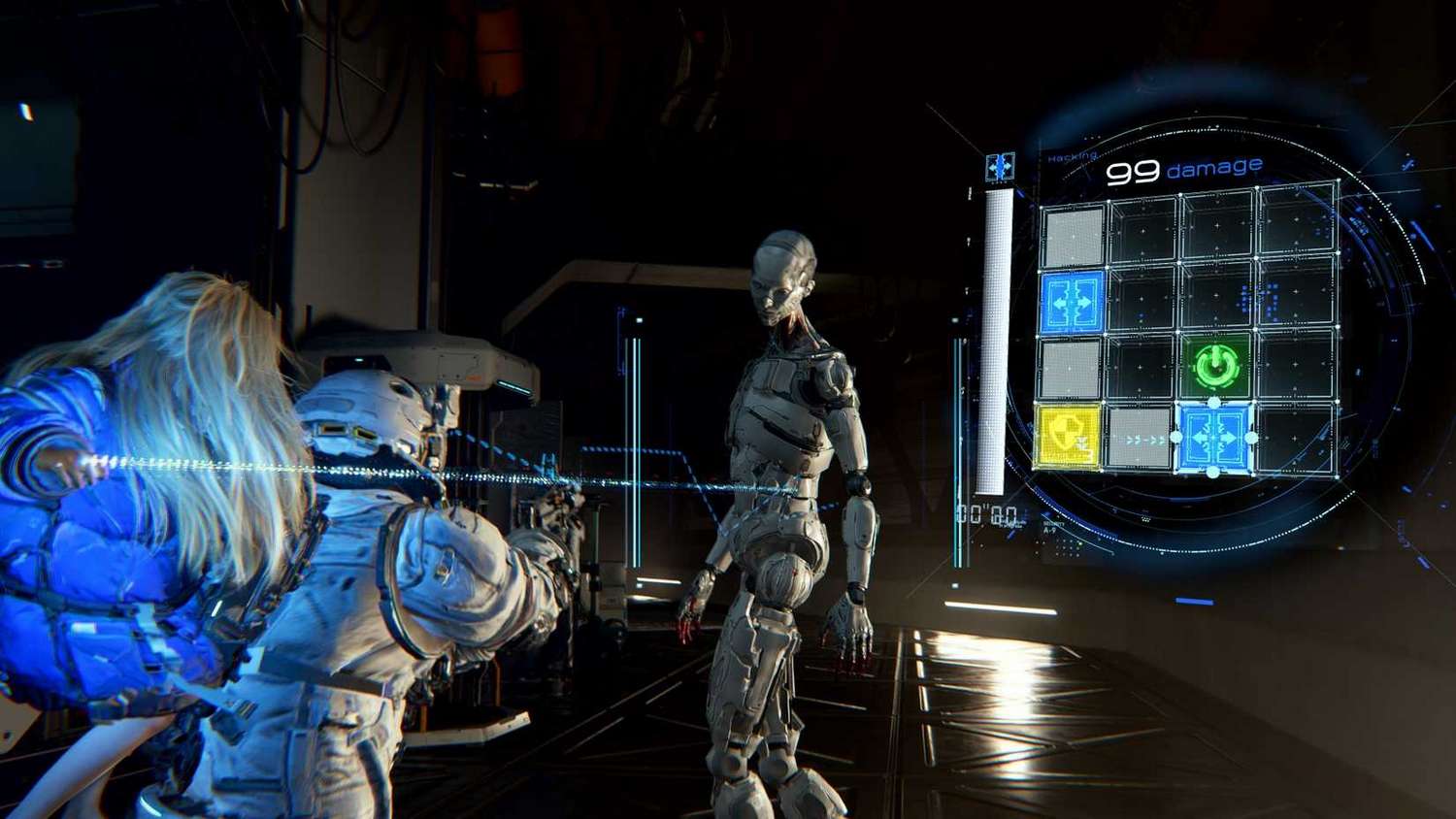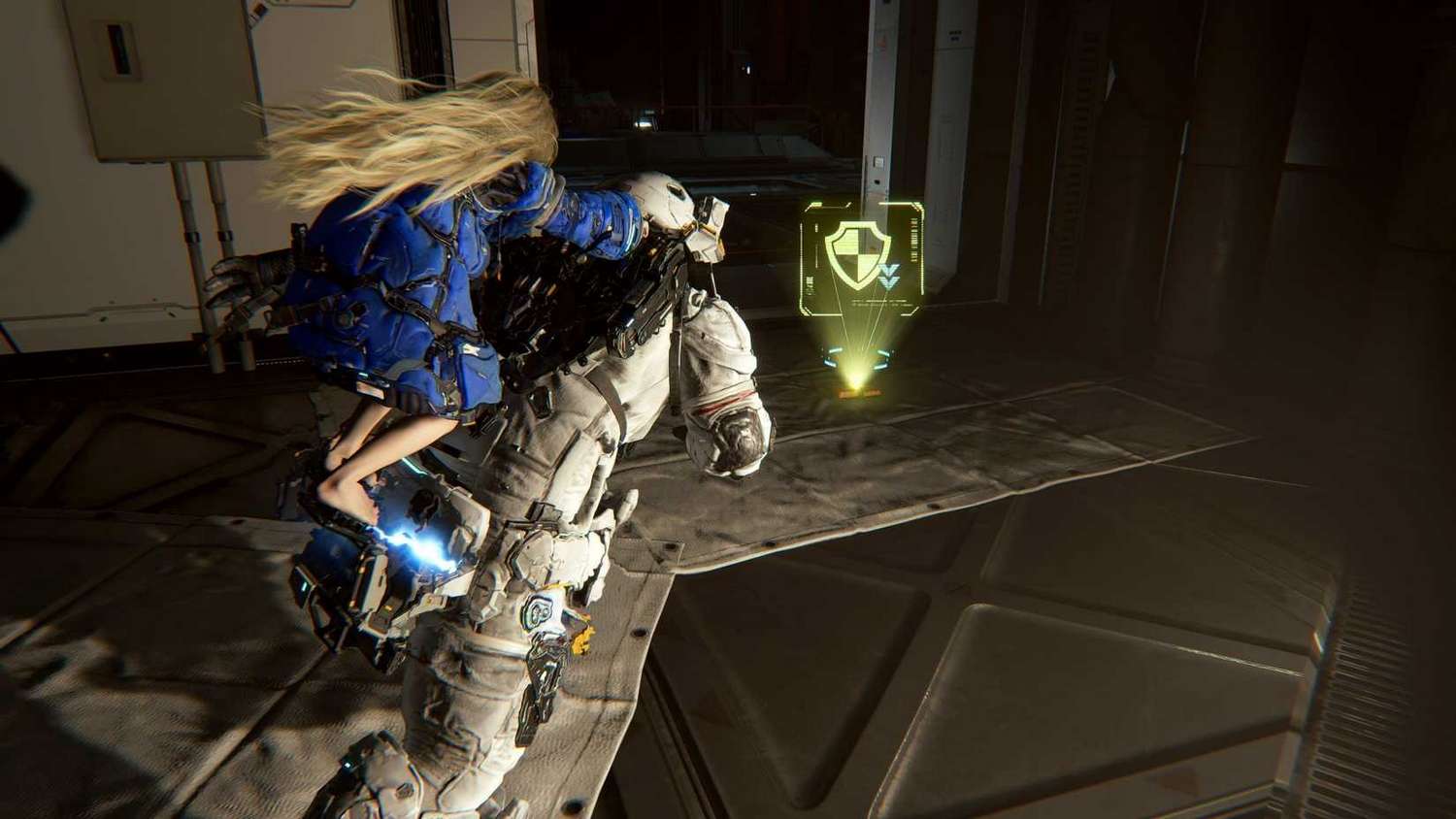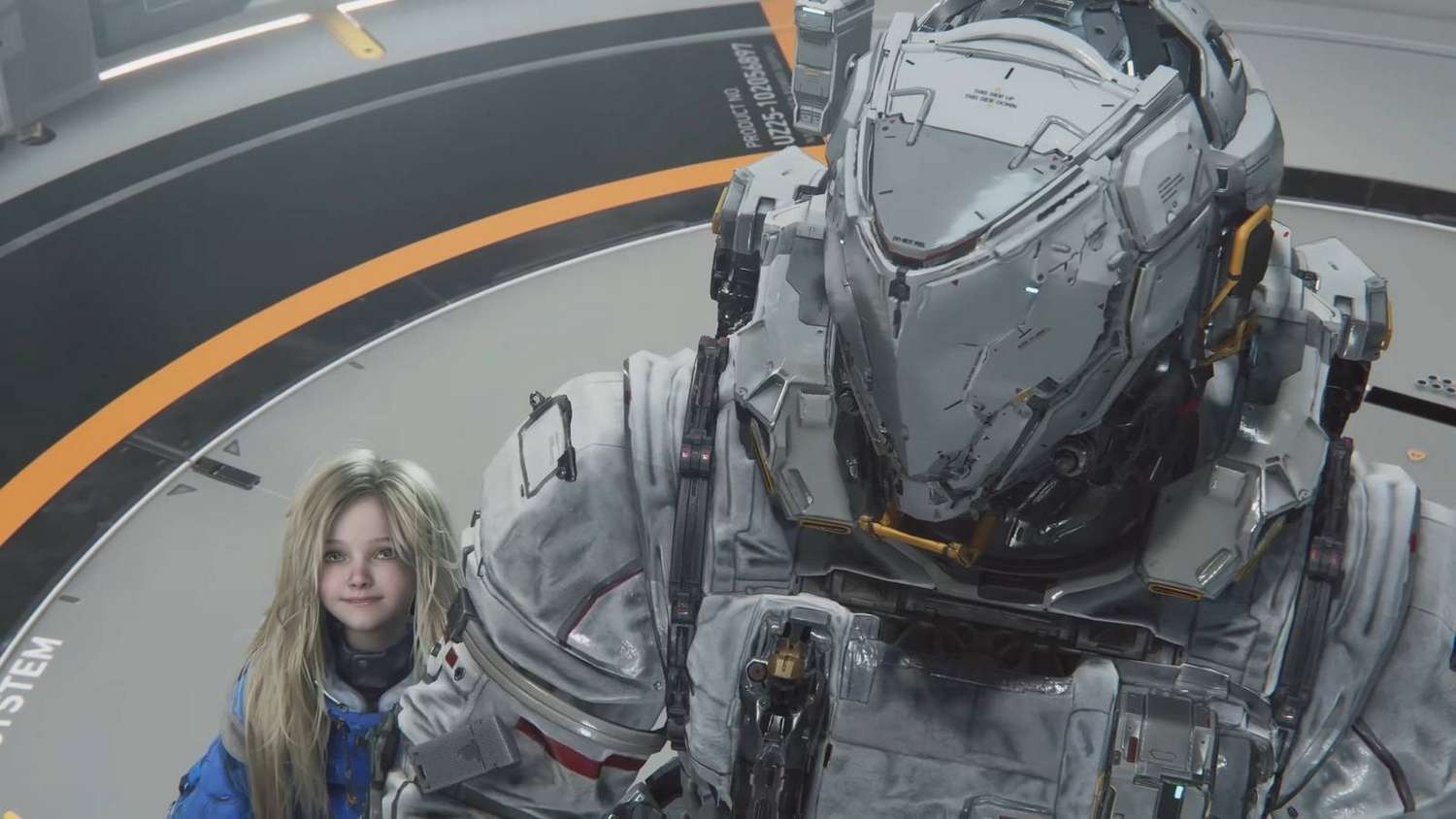Pragmata’s Combat-Puzzle Mechanics: Unpacking the Hype and Next-Gen Innovation
Popular Now
 NBA 2K24
NBA 2K24
 Stumble Guys
Stumble Guys
 Counter-Strike 2
Counter-Strike 2
 Free Fire
Free Fire
 The Legend of Zelda
The Legend of Zelda
 Genshin Impact
Genshin Impact
 Fall Guys
Fall Guys
 Grand Theft Auto V
Grand Theft Auto V
 Brawl Stars
Brawl Stars
 Rust
Rust 
Capcom’s enigmatic title, Pragmata, has been a subject of intense speculation and anticipation since its initial reveal. While the game’s release date remains a moving target, the detailed glimpses into its unique combat-puzzle mechanics have consistently fueled significant buzz within the gaming community. Far from being a mere action-adventure game, Pragmata promises to deliver a cerebral yet exhilarating experience, where strategic thinking is as crucial as quick reflexes. This deep dive explores why the proposed combat-puzzle synergy in Pragmata is not just living up to the hype but is poised to redefine player engagement in the next-generation gaming landscape.
The Core Design Philosophy: Blending Brains and Brawn
At the heart of Pragmata’s allure is its innovative approach to gameplay, meticulously crafting encounters that demand both tactical prowess and environmental manipulation. Unlike traditional action titles where combat is often a test of pure skill and pattern recognition, Pragmata integrates complex puzzle elements directly into its battles. This means players aren’t just facing enemies; they’re solving dynamic environmental riddles under pressure. The game’s protagonist, equipped with advanced technology, interacts with a bizarre, post-apocalyptic lunar setting, utilizing gravity manipulation, energy fields, and various gadgets to overcome obstacles and adversaries. This seamless integration ensures that every encounter feels fresh and unique, preventing the monotony often associated with repetitive combat loops in other titles.
Developers at Capcom have emphasized a design philosophy centered on player agency and creative problem-solving. Early concept art and technical demonstrations hint at a world where physics-based interactions are paramount. For instance, players might need to re-route energy to disable enemy defenses, activate dormant machinery to create temporary cover, or even use environmental hazards to their advantage. This commitment to intelligent design positions Pragmata as a standout title for those seeking a richer, more thought-provoking gaming experience beyond conventional button-mashing.
 Leveraging Next-Gen Power for Immersive Gameplay
Leveraging Next-Gen Power for Immersive Gameplay
The ambitious scope of Pragmata’s combat-puzzle mechanics is inextricably linked to the capabilities of modern hardware, particularly the PlayStation 5, Xbox Series X, and high-end PC gaming platforms. The game is expected to push the boundaries of real-time rendering, physics simulations, and artificial intelligence to deliver an incredibly immersive world. This technological foundation is vital for the dynamic environmental interactions that define Pragmata’s gameplay. High-fidelity graphics and realistic physics simulations are not merely cosmetic; they are integral to how the combat-puzzles function. Imagine manipulating objects with precise control, watching debris react realistically to explosions, or observing complex systems operate in real-time, all contributing to the tactical options available to the player.
The enhanced processing power allows for intricate level design where puzzle elements aren’t static backdrops but active components of the battlefield. Furthermore, the faster loading times inherent to next-gen SSDs will ensure that players can transition seamlessly between exploration and intense combat-puzzle scenarios without breaking immersion. This technical mastery is a strong indicator that Capcom is genuinely committed to delivering on its promise of an innovative gameplay loop that fully exploits the potential of current gaming consoles.
Anticipated Impact and SEO Keywords for High Visibility
Pragmata’s combat-puzzle mechanics hold the potential to significantly influence the broader action-adventure genre. Should it deliver on its promise, it could inspire other developers to integrate more strategic, environmental problem-solving into their combat systems, moving beyond simple enemy encounters. This innovative approach could elevate the perceived value of sci-fi adventure games and establish new benchmarks for gameplay innovation. For SEO purposes, keywords such as ‘Pragmata release date,’ ‘Capcom next-gen game,’ ‘PS5 exclusive details,’ ‘innovative gameplay mechanics,’ ‘best upcoming action-adventure games,’ and ‘combat puzzle systems’ are critical for capturing search visibility and engaging a wider audience looking for deep, analytical gaming content.
High-CPC keywords like ‘immersive gaming experience,’ ‘next-gen console gaming,’ ‘advanced combat systems,’ and ‘premium video games’ also naturally align with discussions surrounding Pragmata’s potential, attracting valuable traffic interested in cutting-edge entertainment and technology. The game’s unique blend of genres makes it a compelling topic for dedicated gaming news outlets and review sites, promising significant engagement and discussion.
Examining the ‘Puzzle’ in Combat: Strategic Layers
What truly differentiates Pragmata is how it elevates the ‘puzzle’ aspect beyond simple switch-flipping. Instead, players are presented with multi-layered challenges within combat arenas. Consider the following anticipated elements:
- Environmental Manipulation: Using the protagonist’s unique abilities to alter gravity, create energy shields, or activate dormant machinery to create openings or traps.
- Enemy Weakness Exploitation: Discovering and leveraging specific environmental or technological weaknesses of various enemy types that require careful observation and tactical execution.
- Resource Management: Strategically utilizing a limited array of gadgets and powers, forcing players to think several steps ahead rather than relying on brute force.
- Dynamic Battlefields: Environments that change and react during combat, forcing players to adapt on the fly and continuously re-evaluate their approach.
- Spatial Reasoning: Understanding the layout of an arena and using its features to control enemy movement, line of sight, and create opportunities for attack or defense.
This depth suggests that success in Pragmata will not solely depend on twitch reflexes but on a keen understanding of the game’s systems and an ability to creatively apply solutions to ever-evolving combat scenarios. It’s a testament to Capcom’s ambition to create an experience that rewards ingenuity as much as it does skill.
 Conclusion: The Hype is Justified for Pragmata’s Vision
Conclusion: The Hype is Justified for Pragmata’s Vision
Despite its prolonged development cycle and an as-yet-unannounced definitive release date, the anticipation surrounding Pragmata’s combat-puzzle mechanics is well-founded. The insights provided by Capcom, coupled with the visual fidelity showcased in trailers, paint a picture of a game that aims to innovate rather than merely iterate. By seamlessly blending challenging combat with intelligent puzzle-solving, Pragmata is set to offer a profoundly engaging and distinct gaming experience for next-gen console players and PC gamers alike. The promise of a world where every encounter is a dynamic strategic challenge, powered by cutting-edge technology, positions Pragmata not just as another upcoming title, but as a potential game-changer in the realm of action-adventure games. As the wait continues, the enduring hype around its core mechanics confirms that Capcom is on the cusp of delivering something truly special, an experience where brains and brawn finally meet in a spectacular, futuristic showdown.









 Leveraging Next-Gen Power for Immersive Gameplay
Leveraging Next-Gen Power for Immersive Gameplay Conclusion: The Hype is Justified for Pragmata’s Vision
Conclusion: The Hype is Justified for Pragmata’s Vision